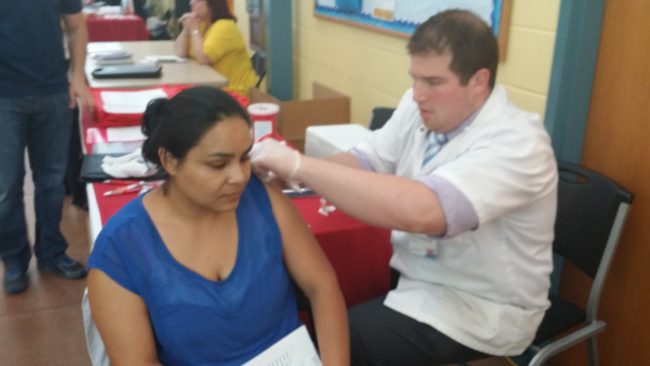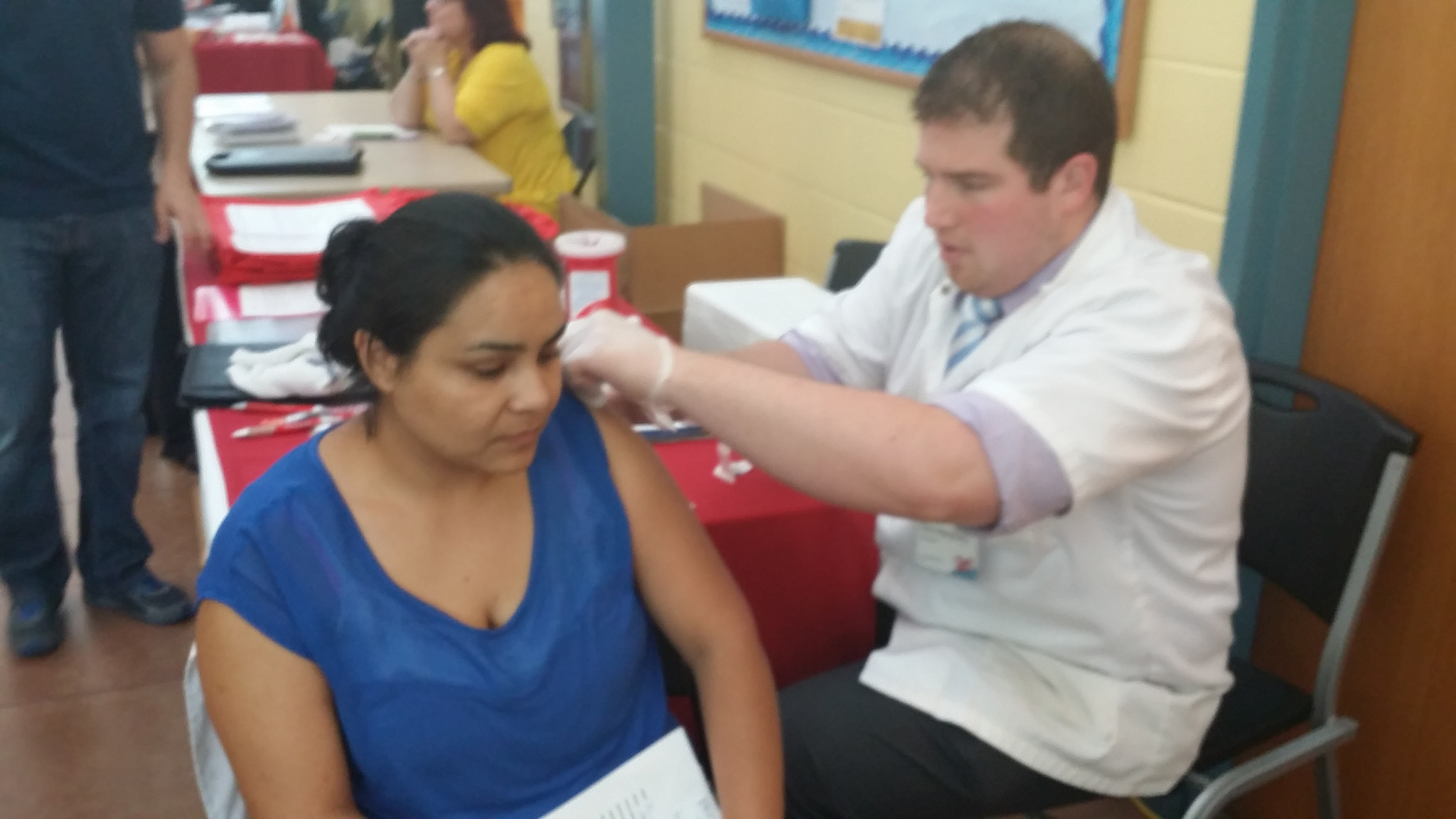|
Getting your Trinity Audio player ready...
|

Every year pharmacies advertise the availability of influenza vaccines, sometimes as early as August. Health experts advise the optimum time for a vaccination is the end of September or during October.
Receiving the vaccine too early will decrease its efficacy before the end of influenza season. On the other hand, since life is busy and it easy to forget the flu vaccine. Having the shot early, on time, or late is better than not being vaccinated at all.
The Centers for Disease Control and Prevention (CDC) recommends having the vaccine in October. However, “as long as flu viruses are circulating, it is not too late to get vaccinated, even in January or later.” The agency reports while it is unusual for the flu season to begin as early as October, the virus typically peaks during December through February. Sometimes the season will linger through May.
Everybody, including children as young as 6 months old should be vaccinated against influenza.
If desired, those over 65 could opt to receive a higher dose shot. There are two reasons a senior might choose to use this option. One is the vaccine designed to provide better protection since seniors’ immune systems decline with age. The other is “70 to 85 percent of people who die from the seasonal flu are 65 or older, and more than 54 to 70 percent of flu-related hospitalizations are in this age group,” according to Piedmont Healthcare.
For those who shy away for shots, there are other options available. Joseph DeVeau, M.D., suggests the vaccine alternative, which is a nasal spray option can be given to those between ages 2 and 49. The candidates for this must be healthy, must not have asthma, and not be pregnant.
He also discusses an intradermal shot for those 18 to 64. This route of prevention consists of a tiny needle, so small that most do not feel the injection.
Reasons for Having an Influenza Vaccine
Influenza is not simply a bad cold. While it may cause symptoms similar to a cold such as a cough, sore throat, sneezing, runny nose, fever, and lack of energy, it is much worse. In fact, nearly 36,000 people die and over 200,000 more are hospitalized every year in the United States.
It takes an average of two weeks after receiving the vaccination for antibodies to develop in the body, which will protect against the virus. If a person does come down with the flu, being vaccinated can lessen the chances of becoming seriously ill.
Myths and Old Wives Tales About Influenza
Many people fear the influenza vaccine. They contend that either themselves or someone they know inevitably gets sick with the virus after being vaccinated. Harvard Health quickly dispels that claim as myth:
The vaccine is made from an inactivated virus that can’t transmit infection. So people who get sick after receiving a flu vaccination were going to get sick anyway. It takes a week or two to get protection from the vaccine. But people assume that because they got sick after getting the vaccine, the shot caused their illness.
Other myths about the influenza vaccine include, the flu cannot be passed if a person is feeling well; that the vaccine is the only precaution one needs to prevent the flu; and, if a person is healthy they do not need an influenza shot nor do they need one every year.
Myth-buster #1. Twenty-30 percent of people without symptoms carry the influenza virus and they can transmit the flu to others.
Myth-buster #2. In addition to influenza vaccines, these steps should be taken:
- Avoid contact with those who have the virus.
- Frequent washing of hands will reduce the chances of becoming ill.
- If exposed before having the vaccine, taking an anti-viral medication may help.
Myth-buster #3. The reason a person should receive a flu shot every year is the virus mutates every year. To be fully protected it is important to be vaccinated to ensure an immunity to the strains the CDC determines will “most likely cause an outbreak.”
 No matter what grandma says, going outside without a coat or wet hair when it is cold will not cause a person to come down with the flu, nor will sitting by a drafty window. Do not starve a cold or feed a fever. When feverish, a person needs more fluids and not eating is not a productive measure since poor nutrition can slow down the healing process.
No matter what grandma says, going outside without a coat or wet hair when it is cold will not cause a person to come down with the flu, nor will sitting by a drafty window. Do not starve a cold or feed a fever. When feverish, a person needs more fluids and not eating is not a productive measure since poor nutrition can slow down the healing process.
Sadly, chicken soup will not speed up one’s recovery. Hot soup will soothe a sore throat and provide needed fluids. However, there is no specific healing quality in chicken.
“The flu is a good example of how medical myths can get in the way of good medical care. When it’s flu season, take the necessary steps to stay healthy. That includes separating fact from myth,” according to Harvard Health.
Protect everyone, one’s self, family, coworkers, and strangers by taking the time to have an influenza vaccination.
Written by Cathy Milne-Ware
Sources:
NPR: Yes, It Is Possible To Get Your Flu Shot Too Soon
CDC: Key Facts About Seasonal Flu Vaccine
Piedmont Healthcare: 10 reasons to get a flu shot
Harvard Health: 10 Flu Myths
Featured and Top Image Courtesy of Lifetime. Education’s Flickr Page – Creative Commons License
Inset Image Courtesy of Les Howard’s Flickr Page – Creative Commons License



